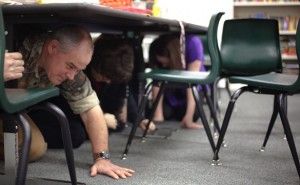Faculty Senate talks pensions, campus safety

February 12, 2013
The university’s Faculty Senate reconvened to pressing issues Tuesday.
Senate member Allan Karnes, an accountancy professor, presented the council with Gov. Pat Quinn’s potential pension solution to the senate, and members addressed potential tuition increases. Besides the budget presentations, members were also presented with an update on campus safety.
The senate touched on how the university could change next year, including cost increases.
Advertisement
Meera Komarraju, Faculty Senate president and an associate professor of psychology, said the university plans a 5 percent tuition increase next school year. However, Chancellor Rita Cheng said this topic would be discussed at the Feb. 28 Board of Trustees meeting.
Senate members also discussed faculty pension issues.
Karnes said the Faculty Advisory Council, which represents state faculty and reports to the Illinois Board of Higher Education, addressed the problems teachers face during its Jan. 18 meeting at Loyola University.
Karnes said there are two principle pension solution plans.
One plan would be teachers’ choice to keep medical coverage after they retire or give up their cost of living adjustment, which is made to Social Security and supplemental security income to adjust benefits to counteract inflation. The other plan, Karnes said, limits the cost of living adjustment to the first $20,000-$25,000 of teachers’ income. The adjustment would additionally remain inactive until the teacher is 67 years old or has been retired for five years, he said.
“Of these two plans, (the first) probably has a better chance of passing constitutional muster because there is some semblance of choice there,” Karnes said.
Quinn and state representatives attended the council’s meeting and presented their possible fix — keep benefits where they are, have employees pay 2 percent more toward the pension and have the state pay everything else by closing corporate tax loopholes, a move which would provide the state with new revenue from protected corporations, Kames said. However, Quinn and the representatives did not state which specific loopholes to close and how much money it would produce, he said.
Advertisement*
“To tell the truth, I’m really disappointed in their proposal,” he said. “I’m disappointed because they’re being kind of lazy and sloppy. What they really need to do is identify a revenue source to pay it.”
Karnes said the state’s lack of motivation is reason for teachers to be more vocal. The state needs to know teachers have long memories, and failing to solve the problem will result in teachers electing different officials, he said.
Other presentations included a campus safety update from Public Safety Director Todd Sigler and Rosemary Simmons, student life and campus safety task force head.
Sigler said he has heard from parents and students that the university is unsafe. However, he said the university is safe, and the problem comes from uninformed perceptions.
“What we’re getting a lot of questions about now are perception and reality issues, which are a lot more difficult to respond to,” he said. “Because if you are the victim of a crime, you don’t really care how many other numbers there are, you know that you were a victim.”
Sigler said crime exaggerations and rumors spread across campus, which is an issue that gives the university a bad reputation. The university has an average crime level compared to most colleges and universities, he said.
The data Sigler presented could put safety concerns to rest, Komarraju said.
“They’ve been fairly careful in collecting the data and giving us comparisons of how we compare with other universities, how we compare with the outside, with the community,” she said. “The picture that they presented is we are not very different from other places, but we’re also very self-conscious and trying to put in place a mechanism so we can protect our students.”
Beyond the presentations, senators passed several degree resolutions and addressed becoming more involved in discussion topics.
The senate passed a resolution to remove the Bachelor of Arts degree in art and design because it has been under-enrolled, and its elimination would not affect any faculty members. The university will still offer the Bachelor of Fine Arts degree for communication design, as well as the Bachelor of Fine Arts degree for industrial design, Senator David Johnson said.
Senators also passed a resolution to change the Bachelor of Science in the electronic systems technologies four-year degree program to two years because most of the program’s students are transfers.
Komarraju said the senate plans to take a more proactive approach toward the topics it covers.
“One of the projects we want to take on in a proactive way is to get more in touch with the legislators because the policies they pass affect us on campus,” she said. “It affects university life, it affects faculty and the resources we get and we feel that they may not always be aware of our needs and what is happening here on campus.”
Advertisement







